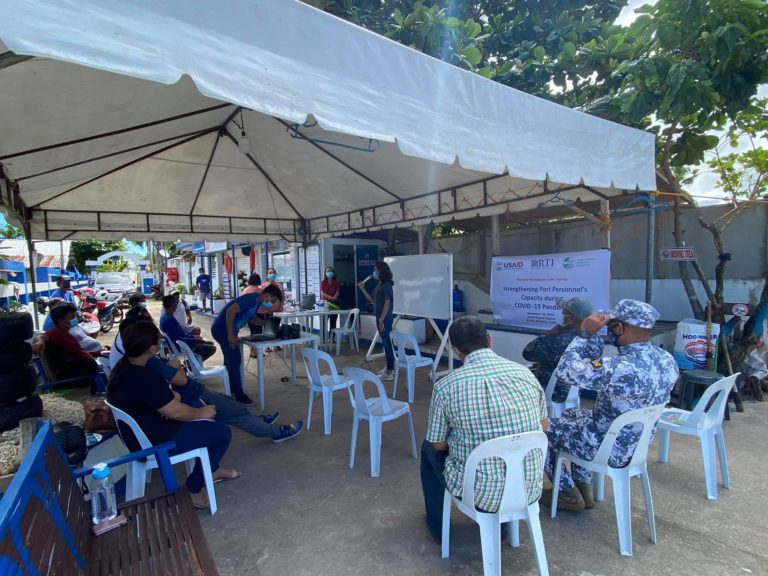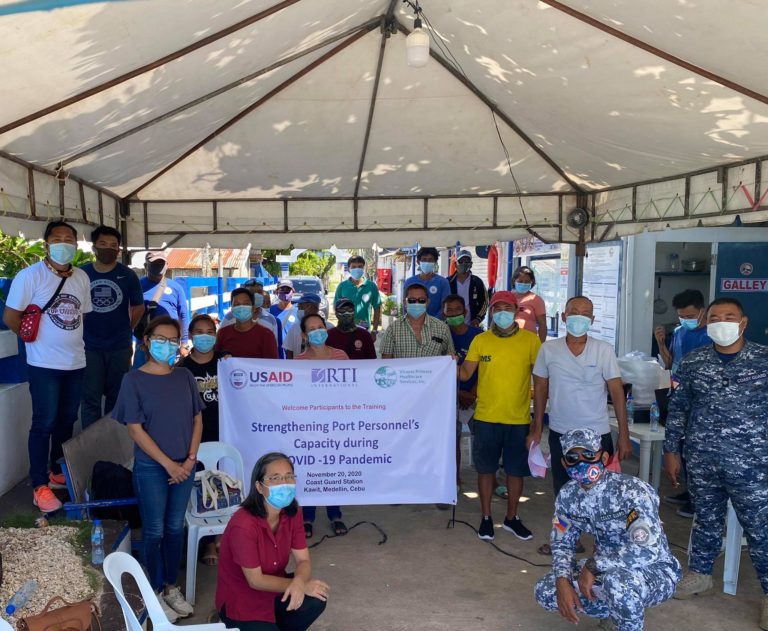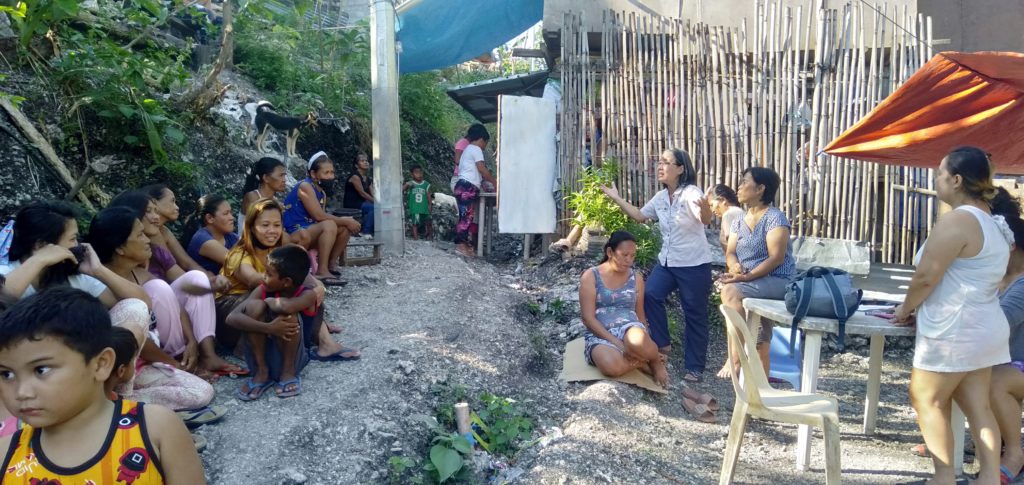A training for port personnel of the Kawit Port was conducted last November 20, 2020 in the Coast Guard Sub-station in Kawit.
The participants included four members of the Philippine Coast Guard in the Kawit Sub-station, eight employees of the local government unit of Medellin, eight Bantay Dagat members, and two tanods, for a total of 22 participants.
The Visayas Primary Healthcare Services, Inc. organized the training as part of the project supported by the United States Agency for International Development (USAID) on COVID-19 response.
Since ports are receiving ends of inbound and outbound passengers, there is a risk of them being places of COVID-19 transmission. The coast guards and personnel working in the ports thus play a very essential role in ensuring a very minimal and if possible, no risk at all, of transmission of the virus among people if there happens to be a positive case in the port, who may also be asymptomatic. Thus, the port people need to review again the basic facts of transmission of the virus, its symptoms and how to control its spread. Since they may be involved in certain circumstances when they have to explain to people matters related with the virus and its effect on people’s lives, there is a need for them to learn about risk communication and community engagement.
At present, the Kawit Port does not accept commercial passengers. Only residents of the nearby barangay island of Gibitngil are allowed to ride in small motorized boats.
VPHCS staff Crescenciana Labitad discussed about infection prevention and control (IPC) followed by VPHCS staff Dr. Erlinda Posadas on risk communication and community engagement (RCCE).
During the discussion on the topic infection prevention and control, the participants presented the latest news that Medellin has 12 new cases of COVID-19 after several days of no cases. They said this could be a lapse in the practice of the health protocols on infection prevention and control. One LGU personnel said that he encountered a COVID-19 positive employee in the LGU office who had his swab test due to symptoms of COVID-19, after which he was seen going around instead of going into home quarantine so that when his positive test result came out, they had to do contact tracing.
They are employees of the government and people look up to them so it is very embarrassing that they themselves do not follow the health protocols. Regarding communication to different types of audiences and different circumstances about COVID-19, the participants said that they indeed had encountered many persons who asked them for advise due to fears of getting COVID-19, refusal to go on home quarantine because they are asymptomatic but COVID-19 positive, anxiety due to loss of their livelihood, and those who are elderly and are scared of dying due to the virus. They said that the RCCE lecture will be useful to them if they encounter similar circumstances next time, when they should practice effective tips of communication such as empathy and a listening ear.
The participants also expressed their appreciation for the training since it will enhance their knowledge on how to ensure that departing and arriving passengers will practice always the minimum health protocols such as social distancing, wearing of face masks, and hand hygiene.






